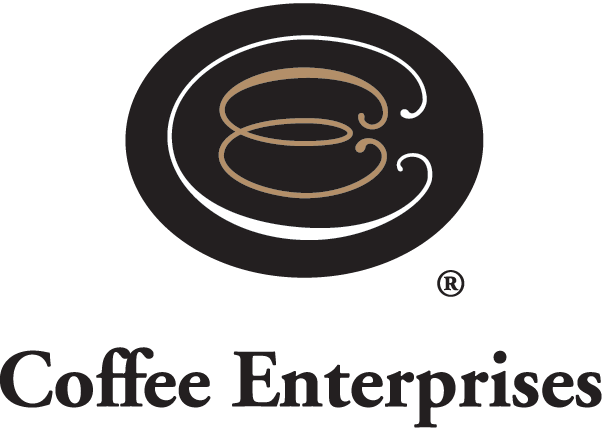Coffee Industry Leadership in the Age of Superlatives
Today’s DailyCoffeeN ews has featured Spencer’s article on Leadership in the Age of Superlatives:
ews has featured Spencer’s article on Leadership in the Age of Superlatives:
In the coffee industry, we have developed a habit of using superlatives and exaggerations to communicate our support for people or activities. Considering that in our industry we share the supply chain, technology and often customers with our competitors, it has become vital to our individuality to communicate our points of differentiation.
“Leader” is a title used in the common vernacular to describe a position of authority. This title has become so commonplace and overused that the true meaning has been diluted. In layman’s terms, a leader is a person who commands a group or controls a function. Leadership is an active position requiring the support of others. Leadership in the professional sense takes on two distinct characteristics: organizational and functional. Leadership is best bestowed, earned, or awarded by the group that will be led. Self-appointed leaders rarely exemplify true leadership.
Often in our efforts to extol the virtues of our own operations in order to separate ourselves from the pack, we cite examples of our own leadership activities, and tend to do so with hyperbole and superlatives. This does not reconcile with an industry that values sincerity and transparency.
Organizational Leadership
In today’s coffee business culture, leadership identification is often synonymous with a management designation.
In politics we refer to “party” leaders, in sports we identify “team” leaders, in business we celebrate “company” leaders. Company mastheads, organizational charts, management structures and depth charts list the leaders at the top by virtue of their title, not necessarily by relationship to their success, accomplishments or leadership skills and abilities.
In politics and sports, we have an expectation that seniority or position automatically equates to leadership status. This assumption is dangerous as it leads to unrealistic expectations that put unnecessary pressure and stress on individuals to perform.
Leadership is a skill, an ability, which is different than mere management, and it is not necessarily correlative to a person’s level of responsibility or authority within a given organizational structure. Seniority, length of service, and tenure are all designations that recognize time, yet do not cause or create leadership ability. Seniority can be defined as success at keeping one’s job — which is not the same as excelling at one’s job. Leadership titles that recognize service do a disservice to those who are true leaders.
Recently I attended the Specialty Coffee Association’s Strategic Leadership Summit (SLS), as I have done on and off for the past 16 years. In the past, this meeting was called the SCAA Joint Board Committee Meeting, which I believe to be a more accurate representation and characterization of the program and the attendees.
Serving as a volunteer, as an appointed committee chairperson or in an elected position provides a level of authority and responsibility to perform actions, complete projects and make decisions. These are all management functions, albeit often executive functions. However, volunteering or being elected to a volunteer position does not automatically make one a leader. Conferring leadership status to someone solely based on their title, or fulfillment of their responsibilities, belittles those who are true leaders.
Functional Leadership
There’s a famous quote from broadcast industry executive Don McGannon: “Leadership is action, not position.” Typical management functions such as monitoring workers, organizing tasks, training and coaching, and motivating and participating in projects are often attributed to leadership, and are relevant to enhancing employee effectiveness. Yet only when a manager’s own actions inspire, and when one’s positive attitude influences behavior, do managers become leaders.
Lead barista/roaster, shift leader, team leader, group or committee leader, etc., are the functional identifiers we use in business to recognize authority. Now, take the word “leader” and replace it with manager or supervisor. Do you still have the same opinion for these titles? Is a shift leader the same as a shift supervisor? Functionally, perhaps yes.
Management in business is often referred to as a catalyst function, one that creates or increases the rate of change; or, as a facilitating function, one that coordinates people or activities to make the process easier. Management can also be considered a persuasive function, one that convinces someone to perform a task; or, as a controlling function, one that determines behavior, information, or task assignments.
It is often common to refer to our boss, employer, committee chairman, or association board member as a leader. In my judgement, to misidentify functional responsibility as leadership can produce a false sense of power and confuse performance expectations.
Defining Coffee Leadership
“Management is doing things; leadership is doing the right things.” — Peter Drucker.
Consider the farm-to-cup process. There are very few instances of intellectual, technological or operational monopolies. Just about everyone has full access in our industry; all it takes is time and money to create your program, build relationships, develop products, and establish your business. The reality of the coffee business is thereby established in our values, beliefs and experiences. Coffee leadership occurs when someone changes the paradigm, and which means a change that affects the coffee industry’s worldview. To do this, coffee leaders utilize a specific set of functions and skills that are inherently different than operational management:
Conceptualization: The development of new ideas or concepts. A single coffee leader can change the direction of the business by introducing a way of thinking that did not exist before.
Innovation: Improving the industry by making changes to something established, or by the creation of new products or processes.
Visionary: Having original ideas about what is possible in the future. A visionary coffee leader understands contemporary products and practices and inspires the industry towards a new direction.
Transformation: Enacting improvements by way of thorough change or alteration. A leader reshapes how we think and act in our businesses, and how we interact with other coffee professionals.
Coffee leaders earn the trust, goodwill and respect of their peers throughout the industry through their actions and ideas. They have credibility, as well as the abilities to positively engage fellow coffee professionals, consider what is possible, and enact change throughout the farm-to-cup supply chain. However, if there is failure or no early adopters can this still be considered leadership?
The Age of Superlatives: The Greatest Age of All Time!
Specialty coffee supply chains are often very similar from roaster to roaster. Green coffee, equipment and technology, and even training is sourced from a short list of world-class providers. And yet, one perennially easy way to differentiate ourselves and our products is to communicate, or glorify, our positive attributes.
For the new social class in the coffee industry, leadership is often claimed based on popularity, reputation, competition success, or simply those with a platform to communicate. Our enthusiasm has led to hyperbole and resulted in a cacophony of superlatives that self-aggrandize and confuse the consumers. Customers seek value and quality, and cannot make an informed decision when everyone asserts a leadership position. It takes no effort for anyone to declare expert status, claim the highest quality, claim to be the first or the only person to complete a task or supply a product, etc. We anoint ourselves with leadership status and accept leadership titles when really our intention is just to demonstrate a position of responsibility and authority, or to differentiate ourselves from our competitors.
Humility was once revered and respected. We let our actions speak louder than words. Today, an enthusiastic desire for recognition has progressed from mere exaggeration to rampant hyperbole.
What will be your future? Shall your reputation be solidified as a specialty coffee professional, a trusted employee, a respected employer, a valuable volunteer? If so, your place in the industry will be applauded, and you will be admired for your dedication, your contribution and participation. Do you aspire to true coffee leadership? It is a lofty goal. It takes more than just showing up.

